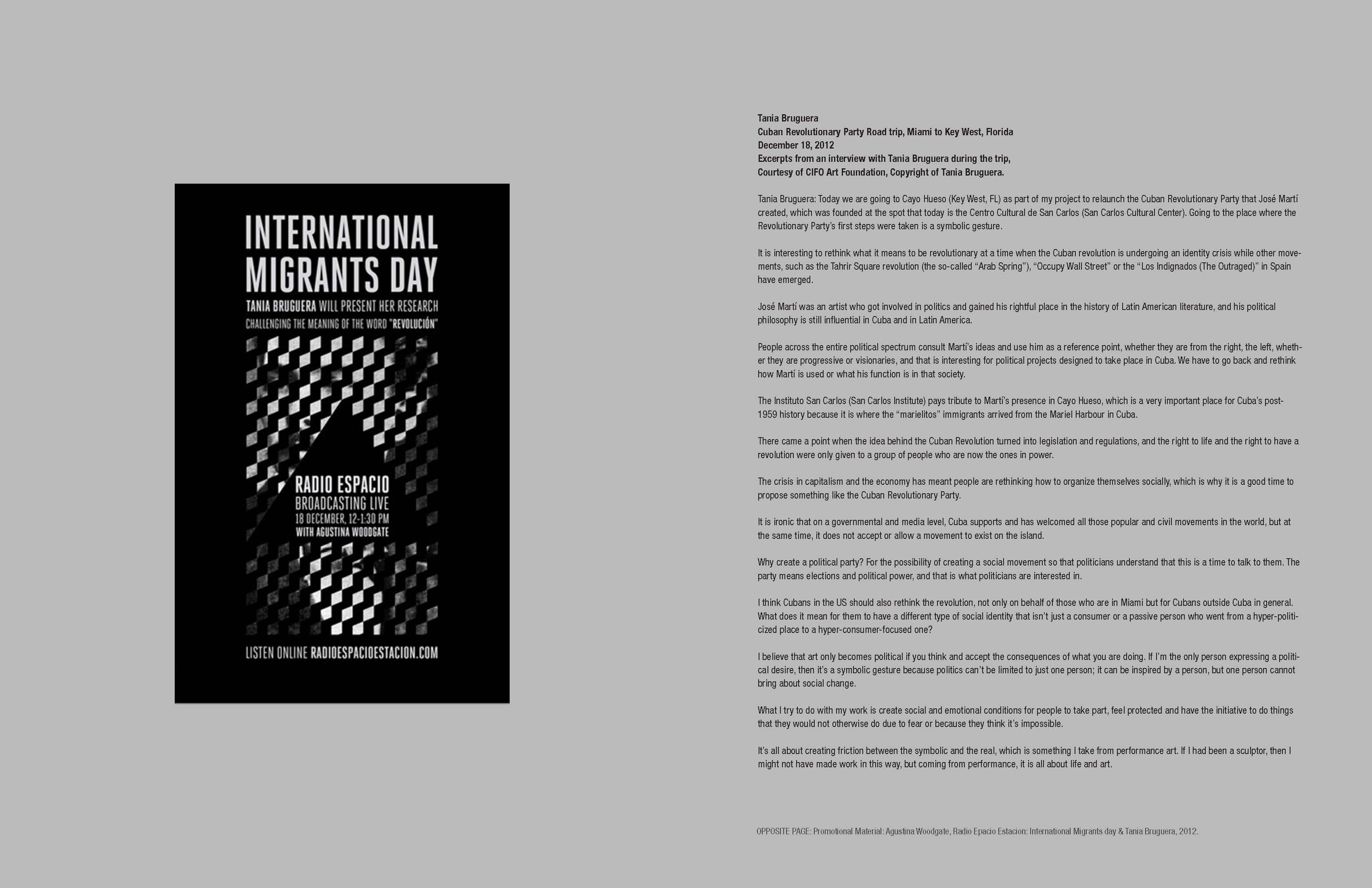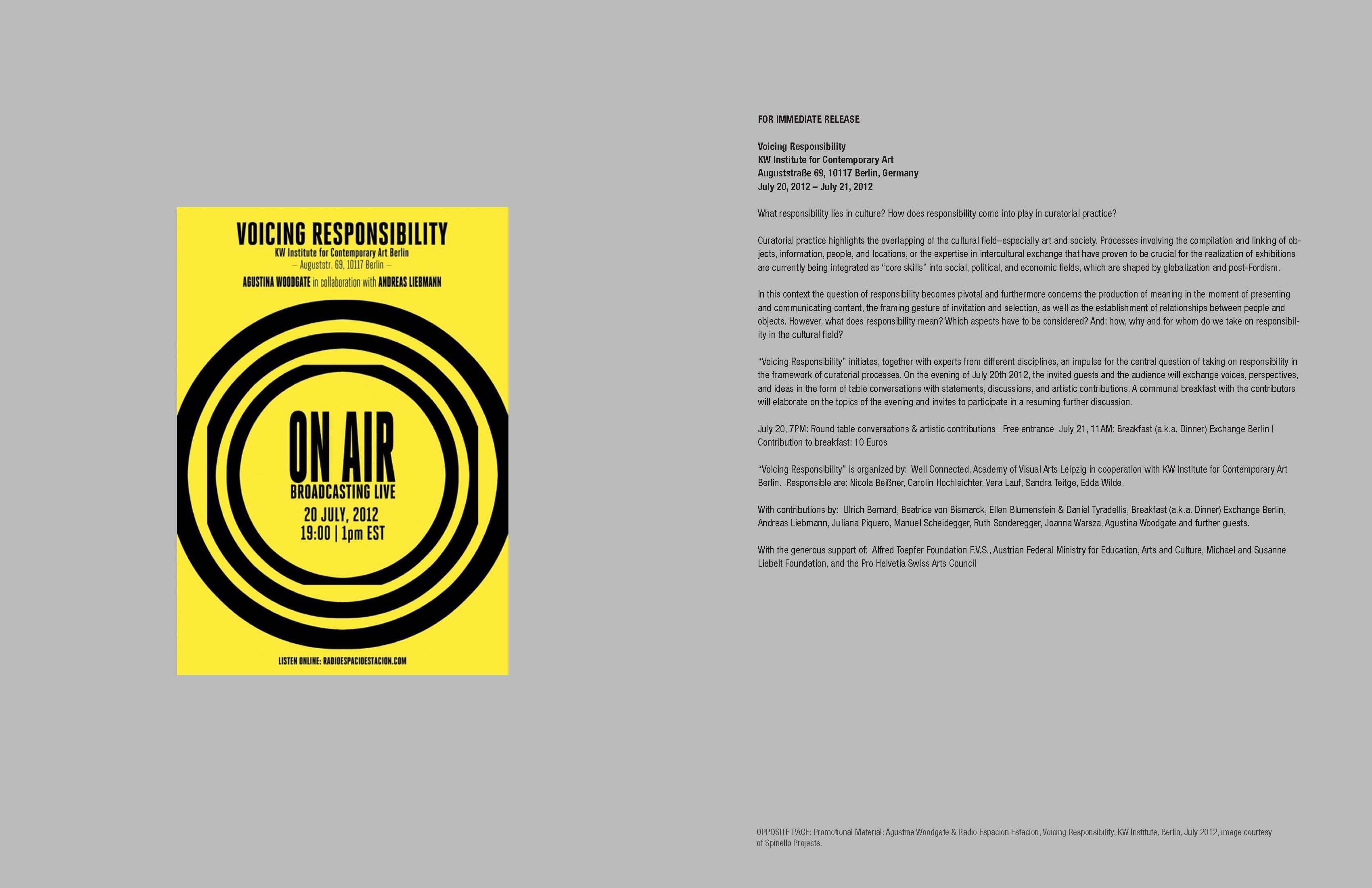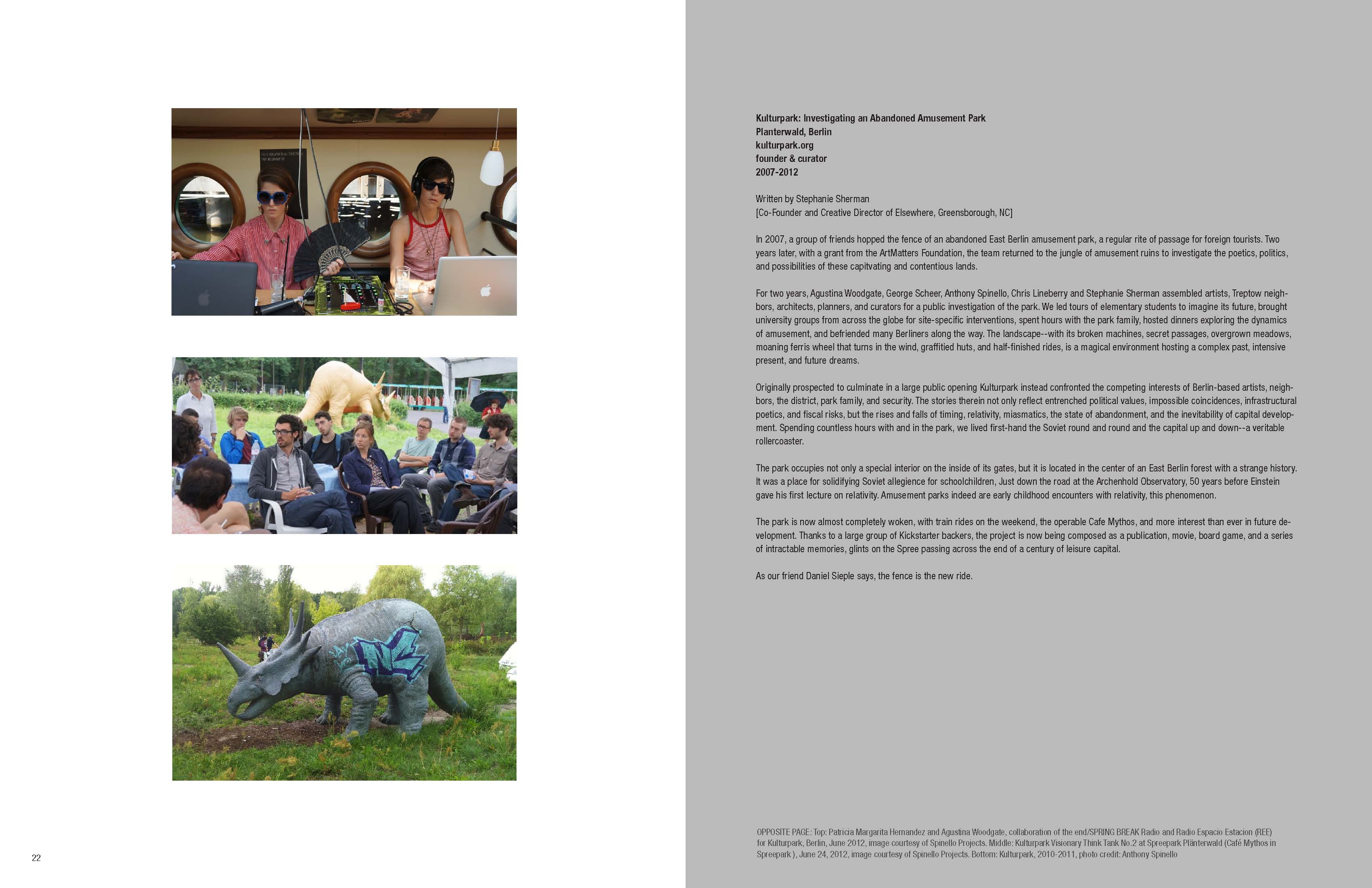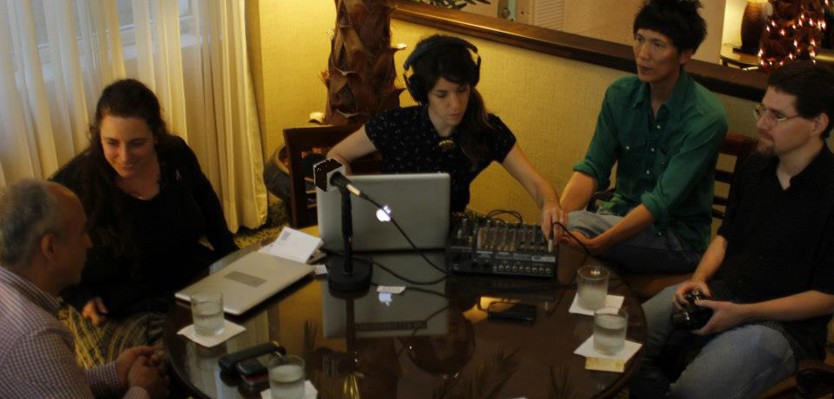
4.16.12 Interview with Agustina Woodgate by Amanda Sanfilippo
AMANDA SANFILIPPO: How did your work with radio begin?
AGUSTINA WOODGATE: “Radio Espacio Estacion (REE)” began with a 2011 grant from NALAC. I wanted to do a pirate radio. I was inspired by the movie “The Boat that Rocks” and also being in Miami with the connections here to pirate radio. The airwaves are available spaces; these spaces now will be activated and become places where the imaginary and the real merge. The fact that it is illegal is attractive to me, but even more so, I liked the emphasis of dialogue. The form that it eventually came to was that it would be online and bilingual; any language combination goes long as there is more than one. The first instatement was in North Carolina at Elsewhere, I did the radio for one month, 4 hours a day. “Radio Espacio Estacion” aims at building relationships within communities by exploring connections between creative processes and everyday cultural experiences. Its programming is based on site-specific narratives, dialogues, and storytelling. It focuses on transmission as a mode for expression and exchange–investigating the relationships with sound and its communicative value. It’s a platform exploring ways for language learning by replacing translation with integration.
AS: How did the project with Tania Bruguera come about? What was your role?

Tania Bruguera delivering press conference in Key West, FL on International Migrants Day, December 18, 2012.
AW: CIFO was hosting a conference for International Migrants Day with Tania Bruguera. I came on in a documentary role for this. Tania spoke entirely in Spanish. No English. For Tania, it was her statement not to do this in English. She re-opened the revolutionary Cuban party, both as a performance artist, and as a Cuban citizen. She read the manifesto of the revolutionary party. What ensued was a dialogue platform, a conversation with Tania and myself. Questions were arising like, “what if no one signs up for the party?” We thought if nothing happens, this is a symbol.
I am interested in live radio. Event-based radio. It’s like traveling without moving in real-time. The radio has a nomadic movement. It can be anywhere. Listeners are mostly in the same place, but since they can listen online they can also listen anywhere.
AS: How was this project different or similar from your other radio experiences with “Radio Espacio Estacion”?
AW: In a way it helped to define what the radio project was/could be through experimenting–how different each could be one from the other. And then discovering knots…connections between projects. You can spend all year sanding a globe and then you can make a broadcast to the world. For me the radio program is not about my own expression. It is about this platform making and collaboration, exploring systems. Exploring our systems that we use to communicate, to travel, to live. Systems that we use to organize ourselves: maps and money. What is exciting is finding a relevance for these systems or a role within a global structure: like archetypes, iconography that translates or transfers. Starting with something we all understated, like Hopscotch. It’s a fact of understanding. I like to use relationships with objects that are grounded in human behavior and let the things decide how they are taken. Like saying, No, I’m not going to decide the content, I am going to open it up, maybe change their composition so they can be read differently, deconstruct the parts.
AS: Was this also how you approached the “Voicing Responsibility” project at the KW Institute in Berlin? This was a few months before the project with Tania. Do you see the direction of radio changing from that experience?
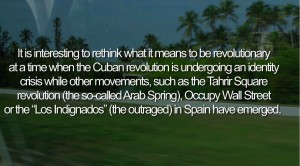
Video still, Video by Luis Martinez, 2012, copyright of Tania Bruguera, courtesy of CIFO Art Foundation.
AW: I am open to what will happen with the radio. At KW I was invited to be in that situation, I would like to work more like that…challenges that make you grow. This was about not knowing what something is yet, not having the words until you are in the situation. Also the project is stronger when it is traveling. Travel feeds the concept, provides the content. Traditionally radio is regional and not nomadic – this is online, bilingual, and nomadic. It is a different concept of “base.” The show at KW featured ways of exploring the meaning, action, and behaviors of responsibility. There were eight conversations happening, eight conversation tables, and at each table, a keynote speaker. I was thinking, “I’m going to build a platform.” For an entire month, I had coffee with curators. And the result was an entire project about conversation. The radio is the program. Really as site-specific radio, the same approach as physical site-specificity. But it was through the filter of the bilingual–and we found that you don’t need to know a language to “speak” it, to communicate. Language can be used as a tool both for inclusion and exclusion, language as survival. So the project was bringing all of this to radio. The conversation arises from the comparison of languages that are being spoken. Some of it was very literal, where the discussion of language was the content, as language experiments. It was not reportage. This is all about language, literally words. This is about listening to the words being spoken and information being communicated…the medium is speaking. And the nature of anything bilingual is that it is collaborative, and through that it also generates an interesting clash.
AS: How did this project relate to the other radio project in Berlin, for Kulturpark? This was just a bit earlier than the KW project.
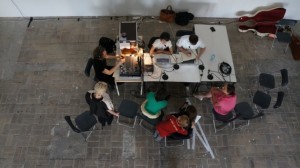
Agustina Woodgate, as part of Voicing Responsibility, KW Institute, Berlin, July 2012, image courtesy of Spinello Projects.
AW: Kulturpark was 2 years of research – each visit I would bring my audio recorder, and follow things intuitively. Sometimes I would hide it in my pocket or bag and not even let anyone know I was recording–but these were just for my own records. It was a way of hiding or subtly documenting. It was a way to get content and context together without it feeling too presented. For Kulturpark, the Miami-based collaborative
“the end/SPRING BREAK” proposed the concept of using a pirate radio platform for an exchange mechanism between Miami and Berlin.
AS: How was that experience different working with “the end/SPRING BREAK”?
AW: The focus was exchange, and site-specificity. It started mashing up music and spoken word. Patty is a music expert, and I did the spoken radio content. And then we did interviews with people about the project. Looking back, there is a strong thread in all of these radio programs. Working through language, different barriers, and there is a driving a need to communicate as a kind of social practice.
Tags: Journal
